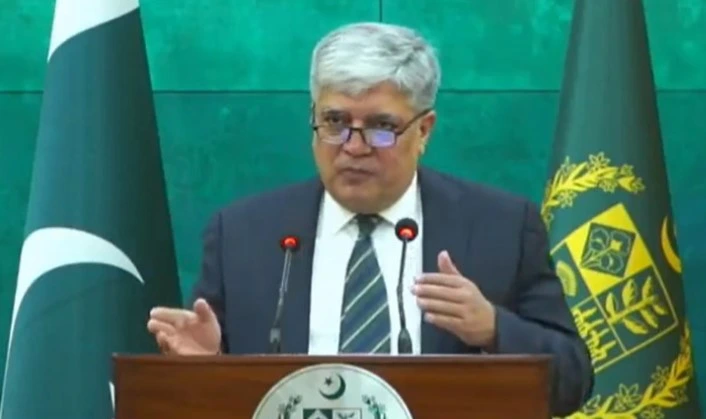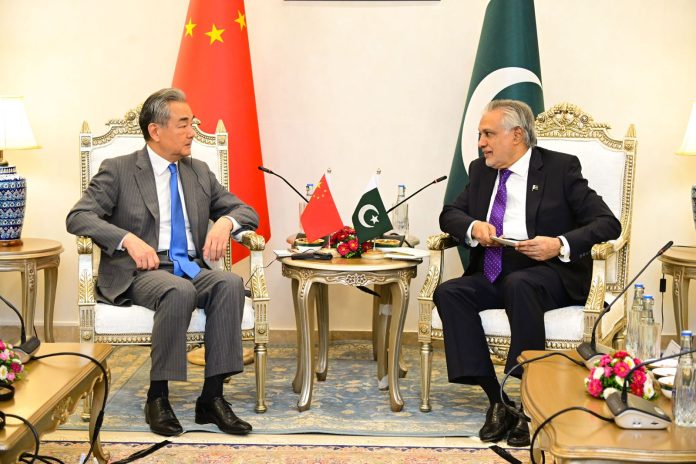
Pakistan Vows to Defend Indus Water Treaty Amid Rising Tensions with India
- Diplomatic News
- April 25, 2025
- No Comment

Pakistan Vows to Defend Indus Water Treaty Amid Rising Tensions with India
Pakistan has reaffirmed its firm stance on defending the Indus Waters Treaty (IWT), calling it a “lifeline” for 240 million people and warning that all options remain open to preserve its water rights under international and bilateral law.
Addressing the weekly media briefing on Friday, Foreign Office Spokesperson Shafqat Ali Khan emphasized that the treaty, which governs water sharing between India and Pakistan, is legally binding and must be respected.
“The Indus Water Treaty is unambiguous. It is our right, sanctified by international law and bilateral agreements. All options are on the table. We will take every necessary step to secure this right for our people,” he stated.
No Mediation Efforts Yet, Says FO
The spokesperson clarified that Pakistan is actively engaging with friendly nations to explain its position. However, no formal mediation efforts have been initiated so far to defuse the escalating tensions.
He reiterated Pakistan’s recent actions following a deadly terror attack in Indian-administered Kashmir that India linked to Pakistan. These include:
- Closure of the Wagah Border
- Suspension of bilateral trade
- Closure of airspace for Indian carriers
- Downgrading of diplomatic ties
- Suspension of all visas except for Sikh pilgrims
Khan warned that any Indian move to suspend or disrupt the treaty would be considered a “hostile act” and met with a full-spectrum response.
“He clarified that “Pakistan is a responsible country, however, India should not create situations that would compel Pakistan to take extreme retaliatory measures.
Concerns Over Pakistani Prisoners in India
Responding to concerns over the safety of Pakistani prisoners in Indian jails, the FO spokesperson expressed hope that India would uphold international humanitarian standards.
“We expect India to treat prisoners in accordance with its international and human rights commitments,” Khan noted.
Condemnation of Indian Media Campaigns
He criticized the Indian media for spreading anti-Pakistan propaganda, calling it “unfounded and irresponsible.” He urged Indian outlets to avoid making accusations without credible evidence.
Updates on Diplomatic Engagements
The FO also highlighted several high-level diplomatic exchanges over the past week:
- Prime Minister Shehbaz Sharif’s visit to Turkiye and his extensive discussions with President Recep Tayyip Erdoğan on regional and bilateral matters.
- UAE Foreign Minister Sheikh Abdullah bin Zayed Al Nahyan’s visit to Pakistan, which led to the signing of:
- An MoU on cultural cooperation
- Launch of the UAE-Pakistan Joint Business Council
- Rwandan Foreign Minister Olivier Nduhungirehe’s visit, during which an MoU on diplomatic training was signed.
Additionally, Deputy Prime Minister Ishaq Dar’s recent visit to Kabul resulted in new understandings, including the establishment of a direct hotline with Afghan authorities.
Condolences on the Passing of Pope Francis
In a heartfelt message, Pakistan extended condolences on the passing of Pope Francis, praising him as a “global advocate for peace, interfaith harmony, and human dignity.”
“Pakistan stands in solidarity with the global Catholic community at this moment of grief,” said the spokesperson.






